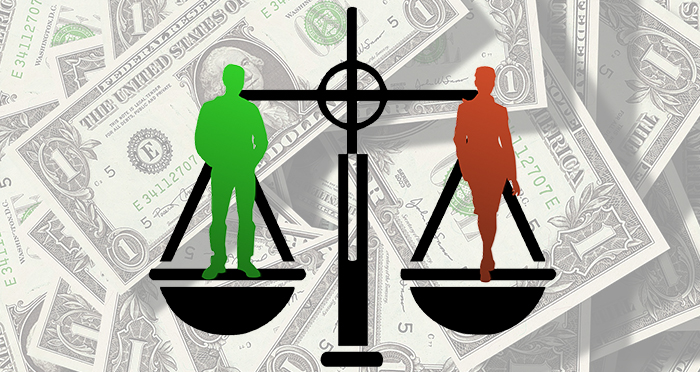Last month, Oregon legislators passed the Equal Pay Act of 2017. What is being called the broadest law of its kind in the country, the Equal Pay Act revises existing law pertaining to equal pay and aims to eliminate any pay gap for all compensation that exists among many protected classes. Under the new law, it is an unlawful practice for employers to discriminate or to pay greater wages or other compensation to one employee over another in a protected classfor work of comparable character. Any individual who renders personal services, either wholly or partially in Oregon, will be an employee subject to the law (with exceptions and a safe harbor for some out-of-state employees).
Employers will also see hiring practices impacted by Oregon’s new law, in that an employer can no longer lawfully seek information about an applicant’s prior compensation.
Who is a protected class under the new law?
Pursuant to existing Oregon law, the only protected class with respect to its equal pay statute is gender. The Equal Pay Act greatly broadens the number of protected classes, whichnow includes race, color, religion, sex, sexual orientation (LGBT or perception of), national origin, marital status, veteran status, disability and age. All employees will now be members of multiple protected classes simultaneously, meaning that from a practical standpoint, pay disparity among virtually any employee could create potential exposure for an employer.
What does “other compensation” include?
While the current definition of compensation means wages only, the new law incorporates all compensation including salary, bonuses, benefits (including fringe benefits) and equity-based compensation.
What does “work of comparable character” mean?
Work of comparable character means work that requires substantially similar knowledge, skill, effort, responsibilityand/or working conditions. Rather than simply considering an employee’s job title or job description, an employer will need to analyze what each employee does day-to-day in order to ensure that employees doing comparable work are equitably paid.
When is it okay for an employer to have a pay differential?
Under this legislation, an employer may pay employees doing work of comparable character at a different compensation level when that pay is based on certain factors such as seniority systems, merit systems, earnings systems based on quantity, quality or piece-rate work, workplace location, education, training, experience, travel (if necessary) or any combination of those factors. Unless they can be measured on an objective, systematic basis, a competing job offer, higher starting salary or other intangible factors (such as leadership or potential) will not be grounds for a pay differential.
What can employers do now to prepare?
As we gear up for the new law to take effect, employers should continue (or start)to carefully document pay considerations and employee performance, making sure to take a global, systematic approach in those decisions and to consider their potential impact on employee compensation as a whole.Importantly, under the law, employers are forbidden from reducing employees’ pay to equalize the playing field. Further, employers should not instruct employees not toinquire about, discuss or share salary information, as such activities are protected under Oregon’s Paycheck Fairness Act.Establishing performance review and seniority promotion systems, as well as performing equal pay analyses,is now the best route to ensure compliance.
When does the Equal Pay Act go into effect?
Starting on January 1, 2019, employees may bring a private cause of action under this law, as well as file a Bureau of Labor and Industries (BOLI) charge against the employer. More pressing is the Equal Pay Act’s provision on salary history inquiries, which will take effect on September 9, 2017 and be subject to BOLI enforcement at that time.However, employees will not be able to bring a private action against prospective employers for alleged pay inquiries until January 1, 2024.
Penalties allowed under the law are significant and include back pay, liquidated damages, penalty wages, compensatory damages, attorney fees, and in some cases, punitive damages.
Allison Jacobsen is an attorney with BarranLiebman LLP. She advises employers in all aspects of employee benefits and general employment. Contact her at 503-276-2197 or ajacobsen@barran.com





